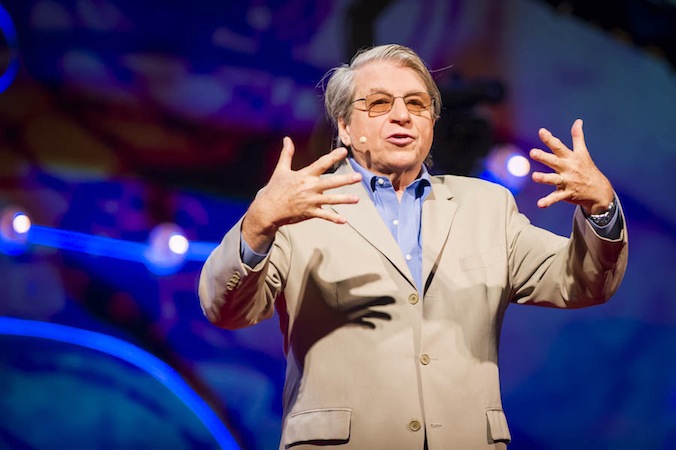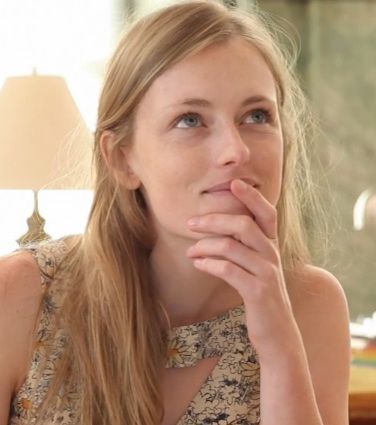Benjamin Barber delivers his June 2013 TED talk. His new book is What if Mayors Ruled the World.
“Democracy is in trouble, no question about that,” says Benjamin Barber in the opening remarks of his June 2013 TED talk. We live in the 21st century, a world where immigration, terrorism, climate change, HIV, war, and markets are now cross-border problems, yet when we look to democracy and politics for solutions, we are faced with “archaic and increasingly dysfunctional political institutions” designed for a 17th century world. Is the challenge of bringing sovereign nations into alignment on such polarizing yet common issues an insurmountable one? Perhaps, but Barber believes we may already have a workable alternative at hand. For him, the answer surrounds nearly three-quarters of humanity: cities.
“Civilization and culture were born in cities,” he says, and the public spaces they harbor are “where we come together to create democracy.” Remember this year’s protests in Tahrir Square where thousands of Egyptians demonstrated against President Mohamed Morsi, and the sit-in in Taksim Gezi Park against an unwanted urban development plan (which later led to protests across Turkey on a wide range of concerns). These are just two of many examples that involve citizens fighting in public spaces for their freedom—actions which lead Barber to believe that we are a uniquely urban animal.
The natural corollary, according to Barber, is that it’s time for mayors to rule the world. Mayors are pragmatists and problem solvers. They can’t allow the kind of paralysis we’re witnessing in Washington today simply because the buses must run. The sewers must drain. Barber says mayors “have to put ideology and religion and ethnicity aside” to get things done. Mayors are also usually from the places they govern, and as a result, they have much higher levels of trust: while a mere 18% of Americans approve of Congress today, 70-80% of Americans approve of their mayors.
Under the leadership of mayors like Michael Bloomberg and Cory Booker, cities have come together to share best practices on everything from bikesharing and pedestrian zones to climate change, says Barber. Even when nations refuse to act, there’s so much that cities can do. “The road to global democracy doesn’t run through states,” he says. “It runs through cities.”
While Barber’s thesis is compelling, it’s not hard to think of mayors who haven’t exactly acted in their cities’ best interests. Even recent history offers the examples of Kwame Kilpatrick, Detroit’s former mayor who was convicted of corruption, and Leslie Thompson, the former mayor of Jonesboro, Louisiana who was charged with malfeasance. And yet, when considered in the light of what’s currently happening in Washington D.C., the potential of mayors seems distinctly potent compared to the political system we live with now.
##
If you believe in the potential of cities to change the world, please join Shareable’s just launched Sharing Cities Network.









